Dynamics Lab and the De Pietro Fellowship
Providing opportunities to pursue basic and applied research initiatives in Civil Engineering and related fields.
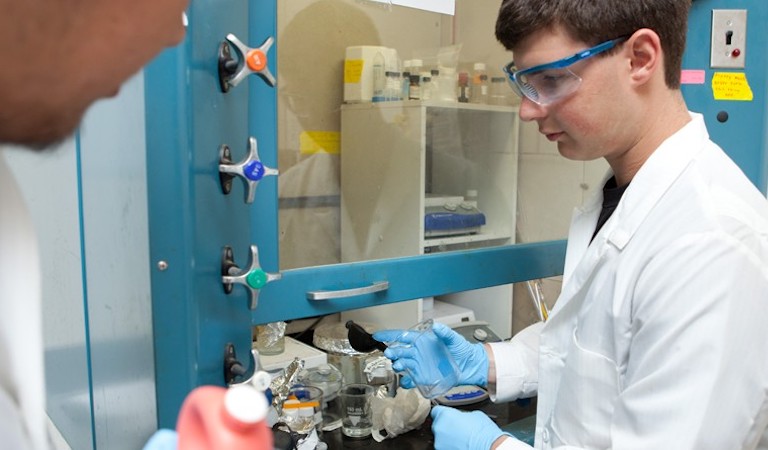
The Department of Engineering hosts several research programs dedicated to conducting cutting edge research in a variety of fields. Directed by individual faculty members, each research program focuses on a different aspect of engineering. The programs and associated lab facilities are funded by private foundations and government agencies including NSF, the Hearst Foundation, and NIH. Outcomes from these programs include: 1) Unique research opportunities for undergraduate students, 2) student presentations at international conferences, 3) student publications in peer-reviewed scientific journals and conference proceedings, 4) outreach education experiences, and 5) training for graduate school programs.
For research opportunities, many faculty will send an email to the engineering majors list in the middle of the fall semester. For information on a particular research, please contact the faculty directly.
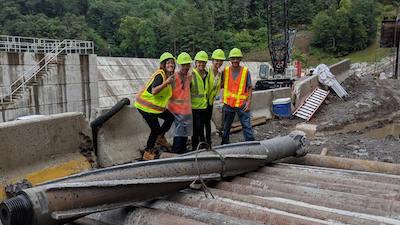
Providing opportunities to pursue basic and applied research initiatives in Civil Engineering and related fields.
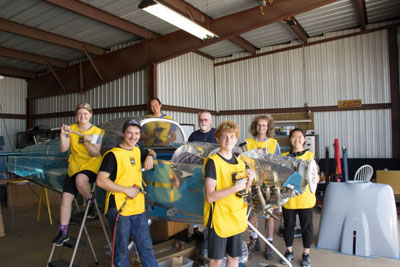
Since Spring 2017, over fifty Harvey Mudd College students and thirteen junior high/high school children have devoted over 5000 hours building a Vans RV-7A experimental airplane in the Aero Lab under the guidance of Professor David Harris.
The Jay Wolkin ’99 and Clay Family Foundation Fellowship, named in memory of the famous and fun-loving Mudder Jay Wolkin, provides students opportunities to pursue basic and applied research initiatives in VLSI Design within the context of the unique engineering program at Harvey Mudd College.

The Engman Fellowship Program aims to create a vibrant learning environment for students to explore cutting-edge research in the field of bioengineering. Several components come together to create this environment, including interdisciplinary projects, team-based learning, and an emphasis on mentoring at all levels.
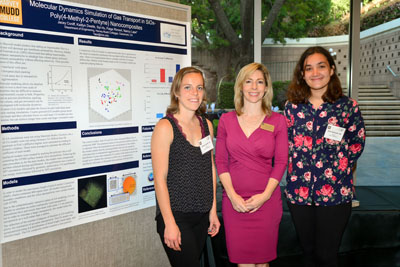
The Nanocomposite Membrane Lab lab examines the crossover between permeability enhancement and reduction with changes in particle size and polymer type.
The Transdermal Transport Research Lab investigates the potential increase in skin permeability by mechanical extension, and the effects of hydration on rate of transport, research that could lead to improved transdermal drug delivery systems.
The Patton and Claire Lewis Fellowship Program provides Harvey Mudd College students with experience and rigorous study of professional practice as either a Lewis Professional Research Fellow or a Lewis Professional Industrial Fellow.
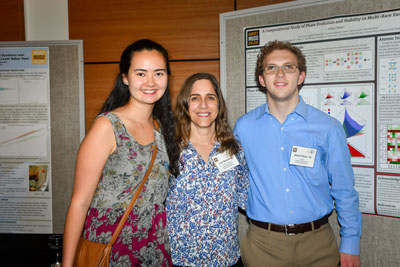
The Fellowship Program in Applied Mechanics provides students at Harvey Mudd College with an opportunity to pursue mechanics-focused research problems that come from a range of multidisciplinary applications, building on the unique general engineering program at Harvey Mudd. The program focuses on developing analytical and computational skills and methods that can be applied to maximize the impact of experiments.
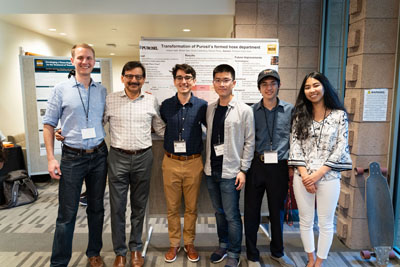
Students conduct applied and lab research in engineering management or a technical field that has significant management components (like manufacturing, quality, and design).
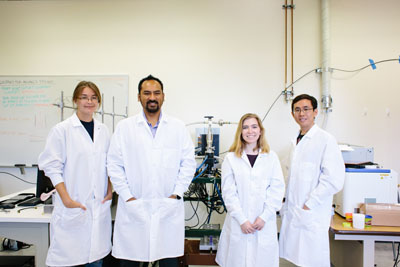
The Dato Research Group at Harvey Mudd College seeks to develop solutions to energy and environmental challenges through the synthesis and applications of advanced materials. Students in the group conduct research on (1) strong lightweight nanocomposites that could replace heavier metallic components on vehicles to reduce emissions and fuel consumption, (2) advanced membranes that are capable of capturing carbon dioxide, (3) novel materials for storing energy, and (4) superhydrophobic surfaces that can harvest drinking water directly from air.
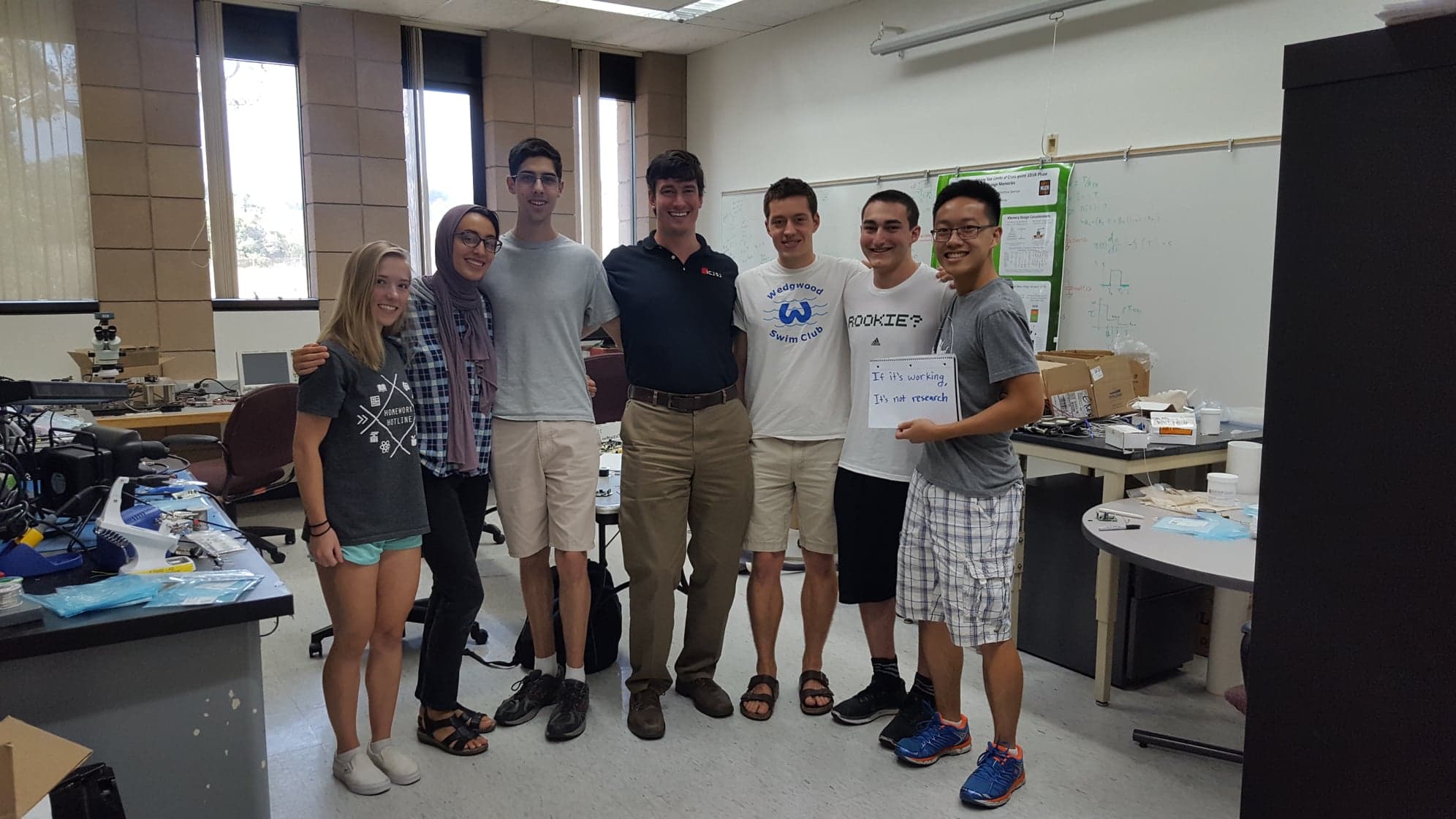
The Analog CIrcuit Engineering (ACE) lab works closely with Professor Matthew Spencer on a variety of projects related to circuit design, MEMS and engineering education. Past projects include characterizing MEM relay dynamics, designing marine ultrasound systems, and studying learning in laboratories and project groups. The ACE lab trains students to be circuit experts, social science enthusiasts, engaging communicators and persistent, independent researchers.
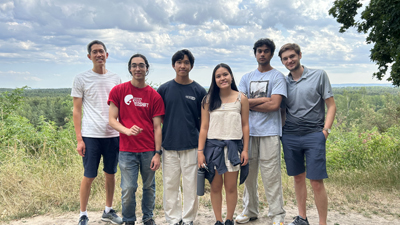
The HMC MIR Lab explores the intersection of music, signal processing, and machine learning.
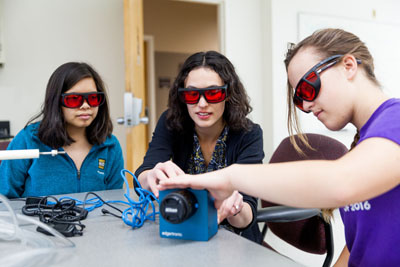
The Flow Imaging Lab at (Harvey) Mudd (FILM), directed by Prof. Leah Mendelson, experimentally studies biological and bioinspired fluid mechanics. We mechanically recreate swimming behaviors seen in nature to identify new strategies for underwater vehicle propulsion. The group also works on open-source tools for three-dimensional flow field measurements.
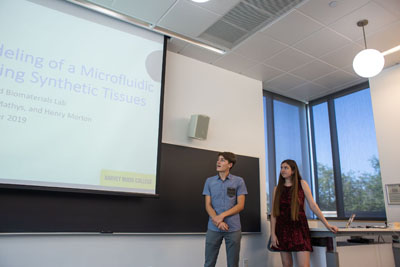
As a doctoral researcher, Professor Santana examined the use of microfluidics to isolate and study cancer biomarkers and design microfluidic devices for this purpose. At Harvey Mudd, Santana designed and taught a new course on microfluidics and nanofluidics and has established a microfluidics research program.
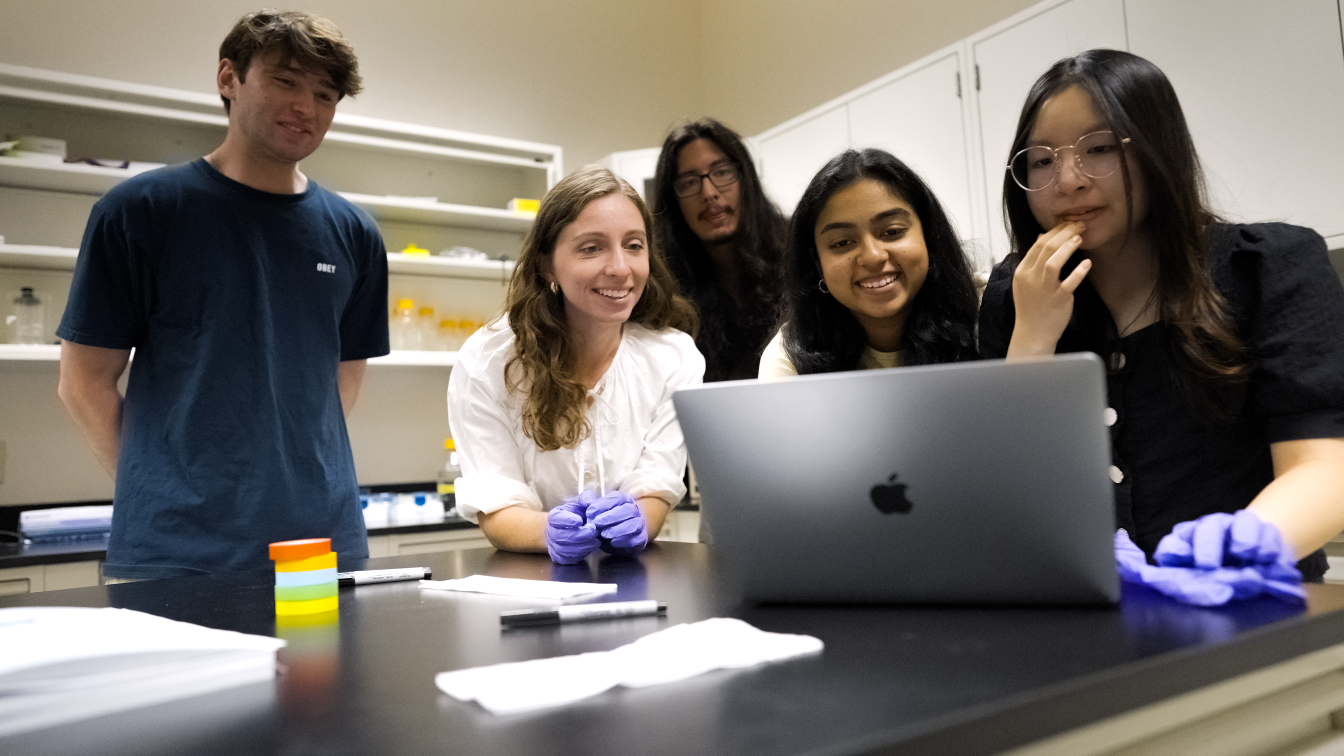
The student scholars in the Molecular Engineering lab are the first to study a previously undiscovered fluorescence property in a well-researched bio-inspired material. We then use what we learn to design fluorescent sensors that detect emerging contaminants in water – a huge technological need in the global water crisis. If you are interested in (1) researching an exciting material property that no one else has studied before, (2) molecularly designing self-assembling materials that glow, or (3) breaking ground on project that has end goals in addressing a key gap in the water crisis – then consider joining the Molecular Engineering research lab!